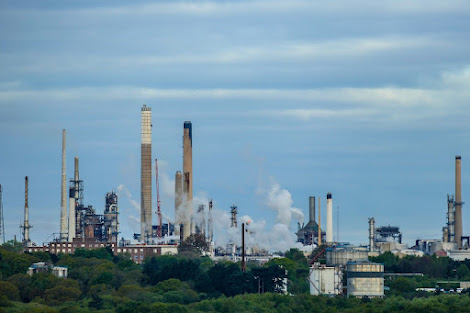The advent of the electric car, solar energy, wind power,
and energy efficiency is already reducing the demand for fossil fuels. The
International Energy Agency predicts declining demand for fossil fuels with an
expected peak in production in 2028. That comes as good news for those who care
about the climate and all that God has created.
However, the petrochemical industry isn’t finished
drilling for and refining fossil fuels. They have a new plan that has been
penned as Plan B for the oil and gas industry. Plastics are made from fossil
fuels. The approximately 13,000 different chemicals added to plastics to give
them different properties (softness, strength, rigidity) are also made from
fossil fuels. Many are toxic and known to cause health effects such as cancer,
fertility, and diabetes.
Plastics is the third largest manufacturing industry in
the country. More than 600 plastic polymer and resin manufacturers are located
in the US with over one million jobs in 2019 concentrated in California, Ohio,
Texas, and Michigan. Nearly half of the worldwide production of plastics is
used for packaging.
Despite the low 9% rate of plastic recycling and new
concerns about microplastics found in bottled water and the human body, the
plastics industry is going full-steam ahead. Plastic production has continued
to increase annually since 2010. In 2023, ExxonMobil doubled its capacity to
produce an important component of plastics in Baytown, Texas.
Not surprisingly, the majority of oil refining and
chemical production occurs in low-income and communities of color, exposing
those who live there to levels of chemical pollutants above EPA recommendations
for health. It is these communities who have the fewest resources to stop
chemical-producing plants from locating in their neighborhoods. Therefore,
plastic production is also an environmental justice issue. That is one more
reason for us as Presbyterians to stop using single-use plastics in our daily
lives and replace them with reusable products.
Jane Laping is vice moderator of Presbyterians for Earth Care. Jane
started on the PEC Steering Committee in 2010 and then served as Vice Moderator
of PEC from 2012-2014. In 2015 she became PEC’s part-time Coordinator and held that position for six years. Jane is also
active at the local and state level, leading the Creation Care Team at her
church in Asheville, NC, heading the Earth Care Team of the Presbytery of
Western North Carolina (WNC), and is on the Steering Team of the Creation Care
Alliance of WNC.


No comments:
Post a Comment